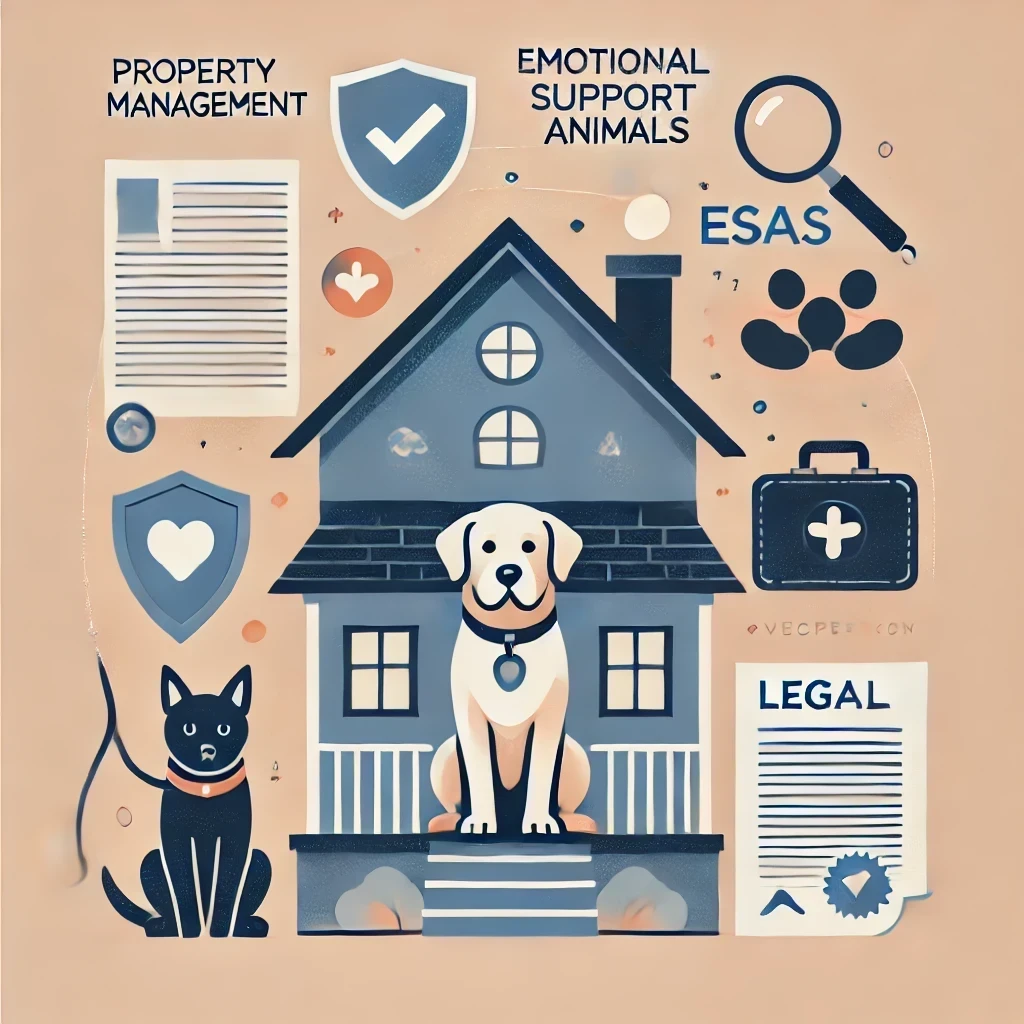As landlords, it’s essential to understand and accommodate tenants’ needs for emotional support animals (ESAs) and service animals while also ensuring compliance with fair housing laws and regulations. While the presence of these animals may pose unique challenges, handling them with sensitivity and adherence to legal requirements is paramount.
Understanding the Difference: It’s crucial for landlords to distinguish between emotional support animals and service animals, as they serve different purposes and are subject to different regulations. Service animals are trained to perform specific tasks for individuals with disabilities and are protected under the Americans with Disabilities Act (ADA). Emotional support animals, on the other hand, provide comfort and companionship to individuals with mental health conditions and are protected under the Fair Housing Act (FHA).
- Accommodation Requirements: Under the FHA, landlords are required to make reasonable accommodations for tenants with disabilities, including allowing emotional support animals in rental properties, even if the property has a no-pet policy. Landlords cannot discriminate against tenants based on their need for an ESA or service animal and must waive pet-related fees or deposits for these animals.
- Utilizing Petscreening.com: One valuable resource for landlords managing ESAs and service animals is petscreening.com. This platform provides comprehensive screening services for pets, including ESAs and service animals, to verify their legitimacy and ensure compliance with fair housing laws. By utilizing petscreening.com, landlords can streamline the process of approving accommodation requests for ESAs and service animals while also protecting against potential fraudulent claims.
- Avoiding HUD Violations: Failure to comply with fair housing laws regarding ESAs and service animals can result in severe consequences, including fines and legal penalties. The Department of Housing and Urban Development (HUD) enforces these regulations and may investigate complaints of discrimination or failure to accommodate tenants with disabilities. Landlords found in violation of HUD regulations may face fines, civil penalties, and damage to their reputation.
- Documentation and Verification: When handling requests for accommodation of ESAs and service animals, landlords should request appropriate documentation from tenants, such as a letter from a licensed healthcare professional confirming the need for the animal. While landlords are not permitted to inquire about the nature of the tenant’s disability, they are entitled to request documentation verifying the need for an ESA or service animal.
Landlords have a legal and ethical obligation to accommodate tenants with disabilities who require emotional support animals or service animals. By understanding the differences between ESAs and service animals, utilizing resources like petscreening.com, and ensuring compliance with fair housing laws, landlords can effectively manage accommodation requests while also protecting their rights and responsibilities. Failure to comply with these regulations can result in significant consequences, underscoring the importance of handling ESA and service animal requests with care and diligence.

